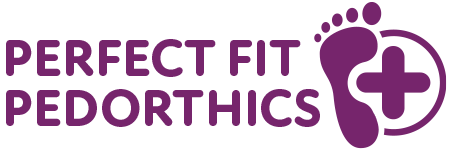Orthopaedics for Shoes: Enhancing Foot Health and Comfort
Foot pain and discomfort can significantly impact daily life, limiting mobility and reducing overall quality of life. Whether caused by medical conditions like plantar fasciitis, diabetes, or flat feet, improper footwear can worsen these issues. orthopaedic shoes and modifications offer a practical solution, providing the necessary support, alignment, and cushioning to keep your feet healthy and pain-free.
Understanding orthopaedic Shoes
orthopaedic shoes are specially designed to support foot structure and function. Unlike standard footwear, they are tailored to provide enhanced arch support, proper alignment, and extra cushioning, catering to individuals with foot conditions or biomechanical issues.
Key Features of orthopaedic Shoes
- Arch Support: Proper arch support prevents strain on the foot and reduces the risk of pain or injury.
- Cushioned Insoles: Extra padding helps absorb shock and relieve pressure on sensitive areas.
- Deep Heel Cups: These stabilize the heel, improving balance and reducing foot fatigue.
- Wide Toe Box: A spacious toe area allows natural foot movement, preventing issues like bunions or hammertoes.
- Adjustable Fit: Many orthopaedic shoes come with straps or laces that allow customization for comfort and support.
- Shock Absorption: Materials designed to reduce impact help protect the joints and improve overall mobility.
When to Consider orthopaedic Footwear
You may benefit from orthopaedic shoes if you experience:
- Chronic foot pain from conditions like plantar fasciitis or arthritis
- Diabetes-related foot sensitivity or neuropathy
- Flat feet or high arches that require specialized support
- Overpronation or supination, which affects gait and balance
- Heel pain or Achilles tendonitis due to improper footwear
If you’re unsure whether orthopaedic shoes are right for you, consulting a specialist can help determine the best option based on your foot structure and needs.
Custom Orthotics vs. orthopaedic Shoes
While orthopaedic shoes are designed to provide built-in support, custom orthotics can enhance standard footwear. Orthotics are specialized insoles tailored to an individual’s foot shape and movement patterns, offering personalized support and correction. These can be inserted into orthopaedic or regular shoes to address specific conditions and improve comfort.
The Role of Shoe Modifications
In addition to orthopaedic shoes, shoe modifications can further improve comfort and function for those with foot-related issues. Common modifications include:
- Rocker Soles: Reduce pressure on the heel and forefoot, aiding in smoother movement.
- Heel Lifts: Help correct leg length discrepancies and improve posture.
- Extra Cushioning: Added padding in key areas reduces impact and pain.
- Stretching Adjustments: Modifying shoe width can accommodate bunions, swelling, or other deformities.
Finding the Right orthopaedic Footwear
Choosing the best orthopaedic shoes depends on your specific foot condition and daily activities. Working with a professional pedorthist ensures you receive the right fit, support, and modifications tailored to your needs.
At Perfect Fit Pedorthics, we specialize in custom orthopaedic footwear and modifications to help our clients achieve optimal foot health and comfort. Whether you need specialized shoes or custom orthotics, we provide expert guidance to help you move pain-free.
Final Thoughts
Your feet are the foundation of your body, and the right footwear can make all the difference in maintaining mobility and comfort. Investing in orthopaedic shoes or modifications can prevent long-term complications and keep you active without pain.
If you’re struggling with foot pain or need professional guidance on orthopaedic footwear, contact Perfect Fit Pedorthics today to explore your options and find the perfect solution for your feet!
—
Disclaimer: The information provided in this article is for informational purposes only and should not be considered as medical advice. Please consult with a healthcare professional or podiatrist for personalised recommendations and treatment options for your specific foot-related concerns.



